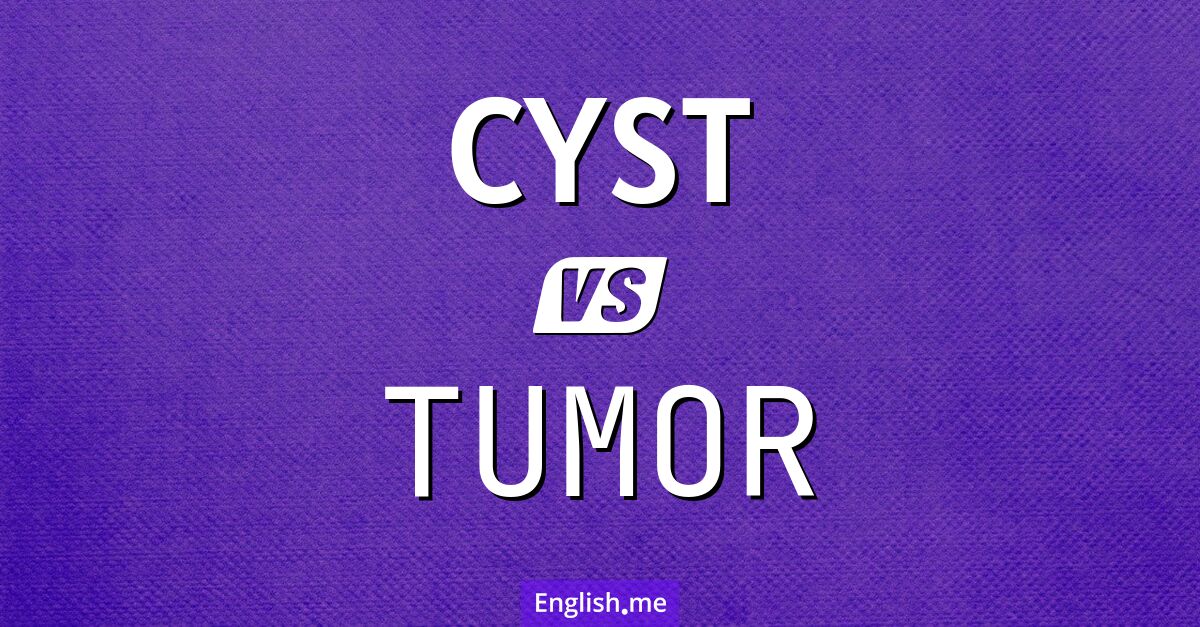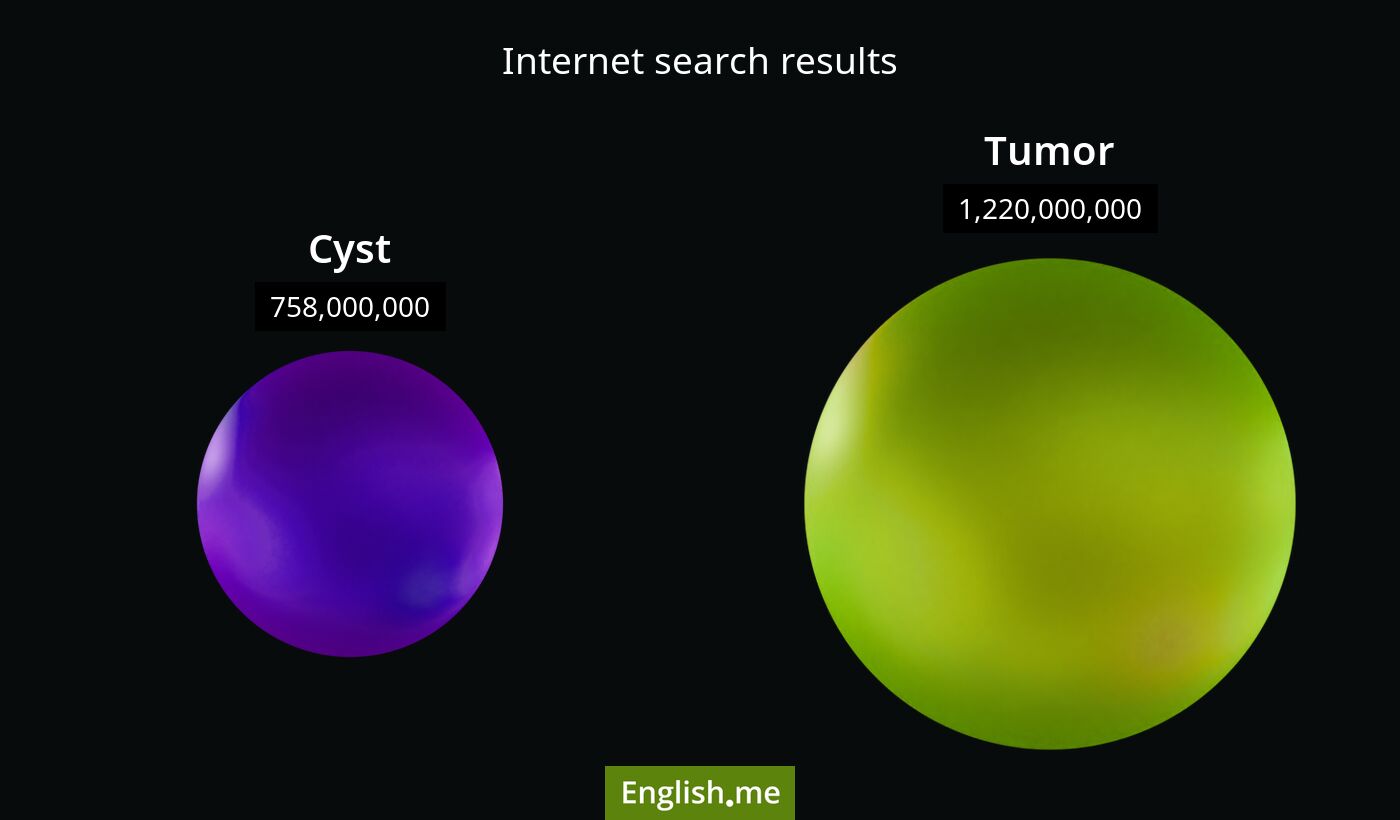"Cyst" vs. "tumor": understanding the difference
Reviewed and edited by  Anwar Kareem 16/02/2025, 18:32
Anwar Kareem 16/02/2025, 18:32
English.me team member

 What is similar?
What is similar?
Both "cyst" and "tumor" refer to abnormal growths in the body and can be associated with swelling or masses. They can occur in various tissues or organs and may require medical diagnosis to determine their nature.
 What is different?
What is different?
A "cyst" is typically a fluid-filled sac that can be benign and may not always require treatment, while a "tumor" refers to a growth of tissue, which can be benign or malignant (cancerous) and often requires further evaluation.
 Which one is more common?
Which one is more common?

 Examples of usage
Examples of usage
Cyst- The doctor drained the cyst that had developed on her wrist.
- An ovarian cyst can sometimes cause severe abdominal pain.
- The radiologist confirmed that the lump was just a benign cyst.
- The patient was relieved to learn that the tumor was benign.
- A biopsy was conducted to determine if the tumor was cancerous.
- Brain tumors can sometimes affect a person's cognition and motor skills.

 English
English español
español française
française italiano
italiano deutsche
deutsche 日本語
日本語 polski
polski česky
česky svenska
svenska Türkçe
Türkçe Nederlands
Nederlands